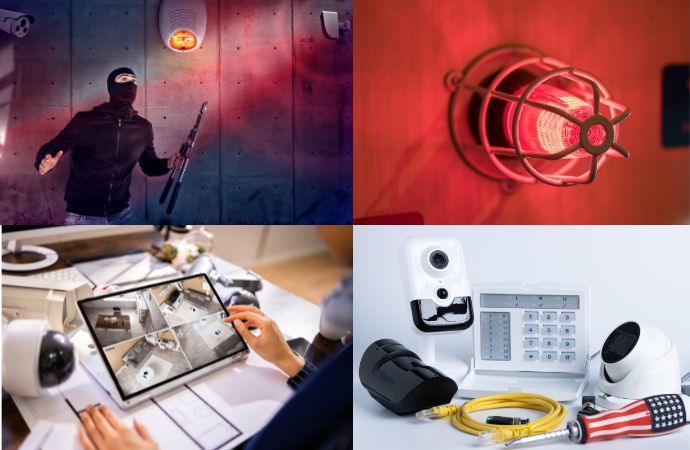“Alif Security 🌟🌟🌟🌟🌟 and team are lightning-quick when it comes to response time, getting the work done professionally with INCREDIBLE HIGH-QUALITY service and very reasonable prices.”

Are Alarm Systems Worth It? Exploring the Value for Homes and Businesses
Alarm systems can be a worthwhile investment for both homes and businesses. They add an essential layer of protection beyond simple burglary deterrence, helping to safeguard property, people, and assets. Home systems in particular provide peace of mind by detecting hazards like fires or carbon monoxide and sending instant alerts to your phone. In commercial settings, alarms similarly deter crime, protect valuable inventory, and ensure around-the-clock monitoring of the premises. Many property owners find that the benefits, such as lower insurance premiums and remote oversight, often justify the cost, though the decision should be based on each user’s specific security needs.
Home Alarm Systems
Home alarm systems offer several key benefits:
- Crime Deterrence: Visible alarms and sensors discourage burglars from attempting to break in.
- Life-Safety Alerts: Integrated smoke, fire, and carbon-monoxide detectors provide early warning of emergencies, giving you time to evacuate or call for help.
- 24/7 Monitoring & Remote Access: Many systems let you monitor your home from anywhere via smartphone apps. Real-time alerts and live video feeds help you respond quickly to unusual activity.
- Insurance Savings: Installing an alarm system often lowers home insurance rates, since insurers recognize the reduced risk of theft and damage.
- Smart Home Integration: Modern alarm panels work with smart devices (voice assistants, smart locks, lights, cameras, etc.), letting you control and automate security alongside other home automation features.
- Pet Safety: Alarm systems can help monitor pets at home, alerting owners if there is a fire, intruder, or other emergency that could endanger their pets.
Business Alarm Systems
For businesses, alarm systems also provide multiple advantages:
- Theft Prevention:Loud alarms and motion sensors deter thieves from targeting your business, protecting cash, inventory, and sensitive equipment.
- Asset Protection:By monitoring entrances, storage areas, and display cases, alarms help safeguard valuable tools, merchandise, and important data from unauthorized access.
- 24/7 Surveillance:Continuous monitoring ensures the business is watched day and night, even when employees are not on site. This can include remote management so owners can check status off-site.
- Employee and Customer Safety:Alarms can detect not only intruders but also emergencies (like fires or medical alerts), enabling a quicker response to protect employees and visitors.
- Insurance Discounts & Compliance:Many insurance companies offer premium discounts for secured premises. Alarm systems can also help businesses meet safety and security regulations, reducing liability and potential fines.
Considerations and Drawbacks
While alarms offer significant benefits, they have some limitations.
Costs: Installing a comprehensive system (including equipment and possible professional setup) can run from a few hundred to over a thousand dollars. If you choose professional monitoring, expect a monthly fee (typically $20–80 on average.
False Alarms: Systems triggered accidentally (pets, power surges, user error) can lead to nuisance alarms and even fines from emergency services.
Maintenance and Reliability: Alarms require periodic upkeep (battery changes, software updates) to stay reliable. Outages (power or internet) can disable the system unless there is backup power or cellular backup.
Privacy and Security: Cameras and sensors raise privacy concerns, and internet-connected systems may be vulnerable to hacking if not properly secured. These factors should be weighed against the benefits when deciding on an alarm system.







